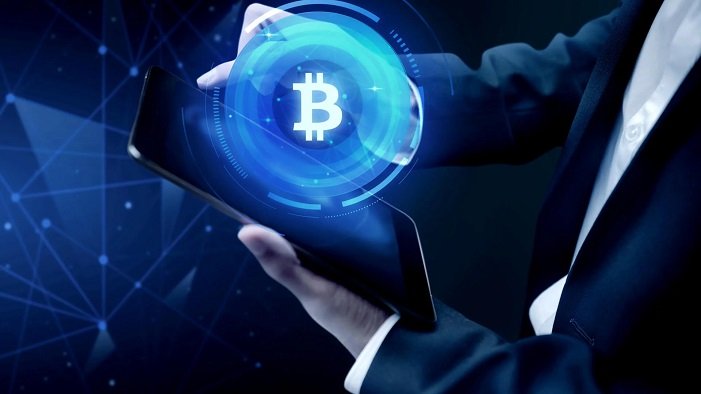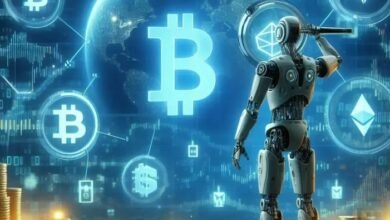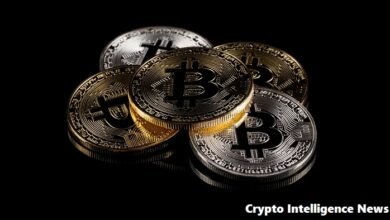
Decentralized Autonomous Organizations (DAOs) represent one of the most revolutionary concepts in the blockchain and cryptocurrency world. As blockchain technology continues to evolve, DAOs are shaping the future of governance, allowing decentralized decision-making without traditional hierarchical structures. In this blog post, we will explore the future of DAOs and their potential impact on various industries.
What is a DAO?
A Decentralized Autonomous Organization (DAO) is an entity that operates through smart contracts on a blockchain. DAOs are governed by their members, who vote on decisions that determine the organization’s direction. Unlike traditional organizations, DAOs do not rely on centralized leadership or management. Instead, they use token-based voting systems to allow stakeholders to make decisions transparently and collectively.
How Do DAOs Work?
DAOs are powered by smart contracts, which are self-executing agreements that automatically enforce decisions once conditions are met. These contracts are typically written on blockchain platforms such as Ethereum, ensuring transparency, security, and immutability.
Members of a DAO hold tokens that represent voting power. Decisions like funding allocation, project approvals, or protocol changes are voted on by the token holders. The more tokens a member holds, the greater their influence on the decision-making process.
The Role of DAOs in the Crypto World
DAOs have become integral to the governance of decentralized finance (DeFi) platforms, blockchain projects, and even community-driven investment funds. The decentralized nature of DAOs allows crypto projects to maintain autonomy, reducing reliance on centralized control and creating a more transparent and fair system of governance.
Some notable DAOs in the crypto space include:
- MakerDAO: Governs the DAI stablecoin and allows members to vote on monetary policy decisions.
- Uniswap: A decentralized exchange (DEX) with a DAO that oversees protocol changes and fee structures.
- The DAO (2016): One of the first DAOs that raised significant funding but also faced challenges due to a smart contract vulnerability.
The Future of DAOs
1. Governance Innovation
DAOs offer a glimpse into the future of decentralized governance. More industries and organizations are expected to adopt DAOs to replace traditional management structures. By empowering stakeholders, DAOs can enable community-driven projects, making the decision-making process more democratic. We will likely see DAOs become common in areas such as:
- Finance and DeFi: DAOs are already managing decentralized financial protocols. In the future, more financial services could shift towards DAO-based governance to improve transparency and reduce centralization risks.
- Corporations: DAOs may revolutionize corporate governance by allowing shareholders or employees to vote on key decisions in a decentralized manner.
2. Cross-Industry Application
Beyond crypto, DAOs could disrupt traditional industries such as real estate, media, and healthcare. For example, a DAO could manage a real estate investment fund, with token holders voting on which properties to buy or sell. In media, a decentralized news platform could use a DAO to vote on editorial content and advertising policies.
3. Increased Legal Recognition
While DAOs currently operate in a legal grey area, future developments will likely see regulatory frameworks specifically designed for DAOs. Countries like the U.S. and Switzerland are already exploring legal recognition of DAOs, making it easier for organizations to incorporate as DAOs and legally conduct business.
4. Improved Smart Contract Security
As DAOs grow in popularity, ensuring the security of the underlying smart contracts is paramount. Future DAOs will likely prioritize better code auditing and security measures to prevent vulnerabilities, such as the one that led to the infamous 2016 DAO hack.
5. Enhanced Decentralized Decision-Making
The efficiency and scalability of DAOs will improve with time. As blockchain technology advances, DAO governance mechanisms will become more sophisticated, allowing for faster, more scalable decision-making processes. This can attract larger communities to participate, making DAOs more powerful and effective.
Challenges DAOs Face
While the future of DAOs seems bright, they face several challenges that need to be addressed:
- Regulation: Governments worldwide are still trying to figure out how to regulate DAOs. Clear legal guidelines and protections are necessary for mass adoption.
- Security Risks: DAOs are prone to smart contract vulnerabilities, making them targets for attacks. Improved smart contract auditing and security practices are needed.
- Coordination Issues: Decentralized decision-making can lead to slower processes due to the need for consensus. Finding a balance between decentralization and efficiency is a challenge for many DAOs.
Conclusion
The future of DAOs in the crypto world holds immense potential. As blockchain technology matures, DAOs are set to revolutionize governance in both the crypto space and traditional industries. With improved security, regulatory clarity, and decentralized decision-making, DAOs could become a cornerstone of the decentralized economy.
FAQ: Decentralized Autonomous Organizations (DAOs)
1. What is a DAO?
A DAO is a decentralized organization run by smart contracts on a blockchain, allowing stakeholders to vote on decisions without centralized leadership.
2. How does a DAO work?
DAOs operate using smart contracts and token-based voting systems. Members vote on decisions, and the outcomes are automatically enforced by the smart contract.
3. What are some examples of DAOs?
Notable DAOs include MakerDAO (governing the DAI stablecoin) and Uniswap (a decentralized exchange). These DAOs allow members to vote on protocol changes and financial decisions.
4. What industries can DAOs impact?
DAOs could disrupt industries like finance, real estate, media, and healthcare by enabling decentralized governance and decision-making.
5. What challenges do DAOs face?
DAOs face challenges like regulatory uncertainty, smart contract security risks, and coordination issues due to decentralized decision-making.





